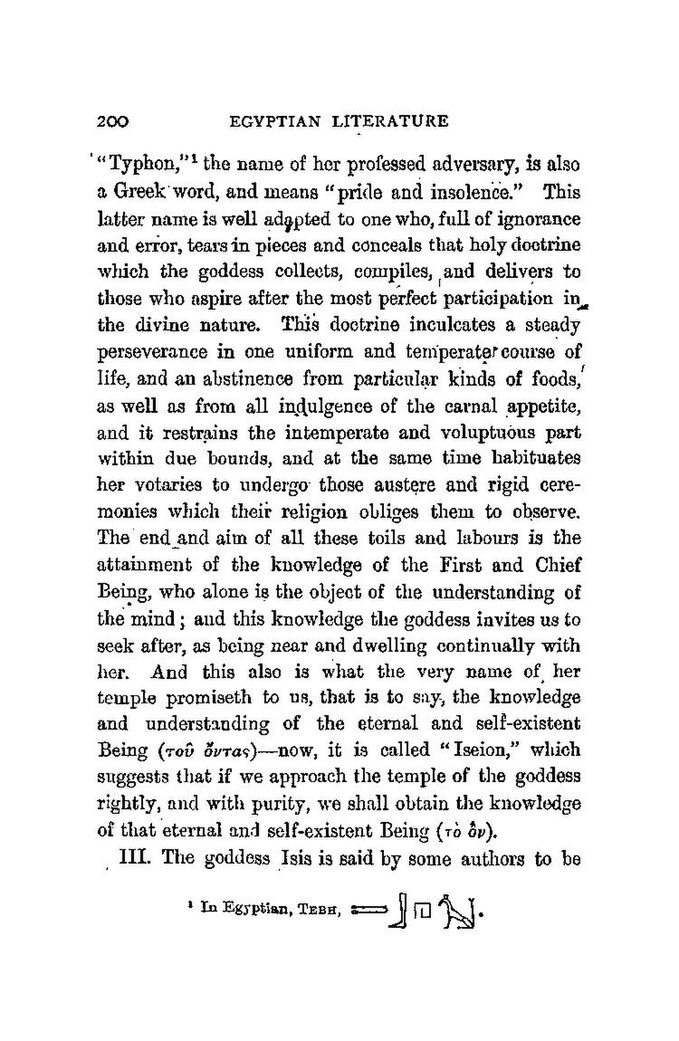"Typhon,"[1] the name of her professed adversary, is also a Greek word, and means "pride and insolence." This latter name is well adapted to one who, full of ignorance and error, tears in pieces and conceals that holy doctrine which the goddess collects, compiles, and delivers to those who aspire after the most perfect participation in the divine nature. This doctrine inculcates a steady perseverance in one uniform and temperate course of life, and an abstinence from particular kinds of foods, as well as from all indulgence of the carnal appetite, and it restrains the intemperate and voluptuous part within due bounds, and at the same time habituates her votaries to undergo those austere and rigid ceremonies which their religion obliges them to observe. The end and aim of all these toils and labours is the attainment of the knowledge of the First and Chief Being, who alone is the object of the understanding of the mind; and this knowledge the goddess invites us to seek after, as being near and dwelling continually with her. And this also is what the very name of her temple promiseth to us, that is to say, the knowledge and understanding of the eternal and self-existent Being (τοὒ ὄυτας)--now, it is called "Iseion," which suggests that if we approach the temple of the goddess rightly, and with purity, we shall obtain the knowledge of that eternal and self-existent Being (τὸ ὂυ).
III. The goddess Isis is said by some authors to be
- ↑ In Egyptian, Tebh,

![D58 [b] b](/w/extensions/wikihiero/img/hiero_D58.png?12f84)


